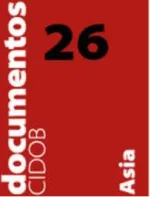Islamic revival in Central Asia: The cases of Uzbekistan and Tajikistan

Documentos CIDOB Asia, n.º 26
Central Asia is undoubtedly a region of special attention of those interested in the relation between Islam and the Modern State. After their communist experience, the five Central Asian republics started a process of re-identification, which involved not only building political institutions but also transforming social and cultural dynamics. Even during Soviet rule, the region had been dominated by the existence of a moderate Islam, deeply rooted and today turned into a key factor for transforming the old homo sovieticus into a new homo islamicus. But in this process, moderate Islam should confront major challenges, the first one coming from Islamic radicalism that seeks the instauration of the Caliphate, the supranational entity ruled by Islamic law; the second, the force of authoritarian political elites who view religion as a powerful instrument to keep a tight grip on power. In the middle of this struggle, almost all Central Asian inhabitants are immersed in a quest for their new identity, just at the point where East and West converge.
ISSN: 1696-9987 (printed edition)
ISSN: 1697-381X (on line edition)